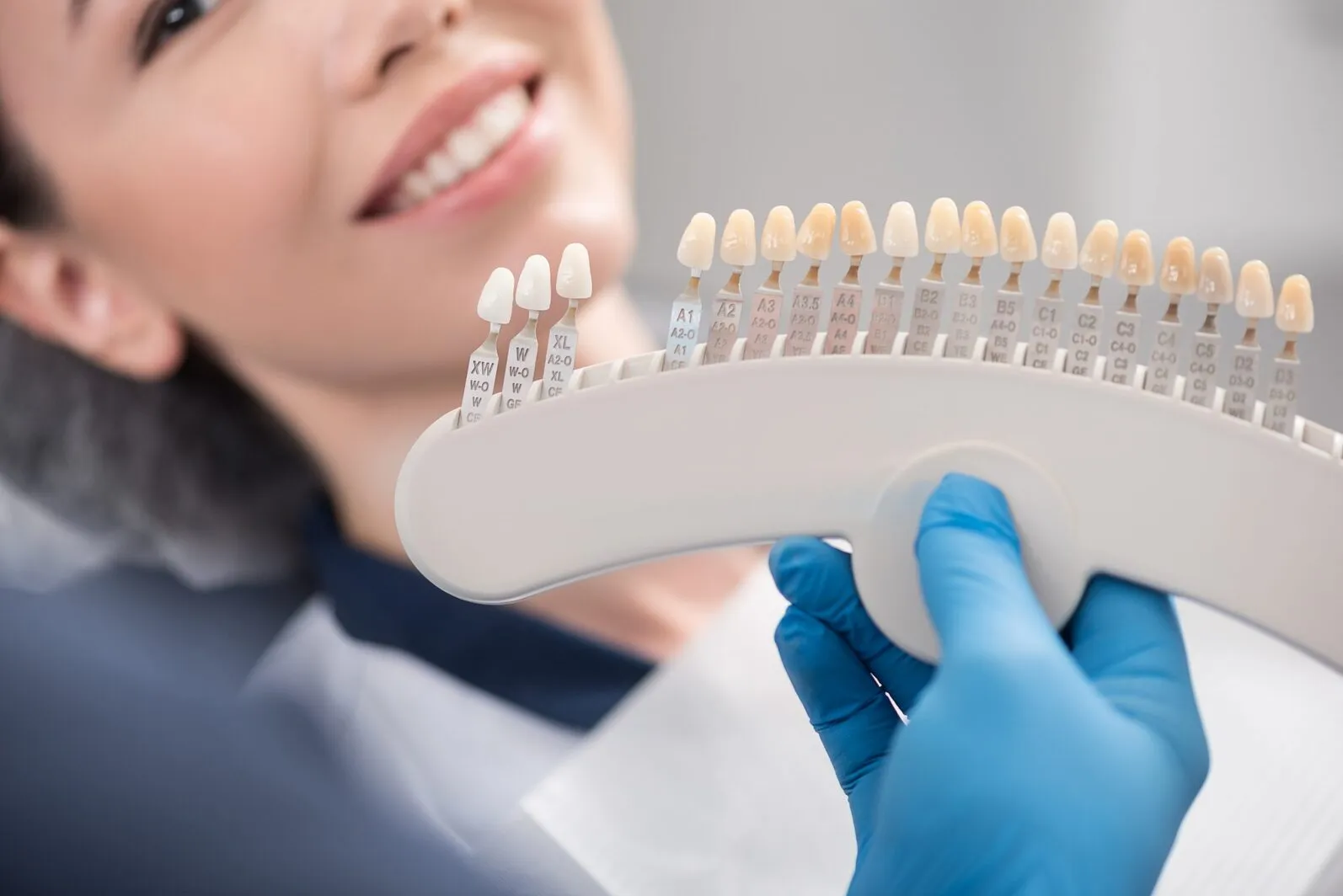The Top 5 Teeth Whitening Benefits
Teeth whitening has become a popular cosmetic procedure, and for good reason. Beyond the obvious aesthetic improvements, teeth whitening offers a range of benefits that can significantly enhance your overall well-being. From boosting confidence to improving oral health, the advantages of whitening your teeth are numerous and compelling. This article will delve into the top 5 teeth whitening benefits, providing a comprehensive overview of why this procedure is a worthwhile investment in your health and self-esteem. Discover how a brighter smile can transform your life, both personally and professionally. Explore the science and methods behind teeth whitening to make informed decisions about your dental care. Understanding these benefits will help you appreciate the value of teeth whitening and how it can contribute to a healthier, happier you.
Boost Confidence with a Brighter Smile
One of the most immediate and noticeable teeth whitening benefits is the significant boost in confidence it provides. A bright, white smile is often associated with youth, health, and vitality, making you more approachable and self-assured. Studies have shown that people with whiter teeth tend to smile more, which can have a positive impact on their social interactions and professional success. Feeling good about your smile can also lead to improved self-esteem and a more positive self-image. This boost in confidence can extend to various aspects of your life, from personal relationships to career opportunities. A confident smile can open doors, create lasting impressions, and empower you to take on new challenges with greater assurance. The psychological benefits of having a brighter smile are often underestimated, but they can be truly transformative.
Improved Oral Health & Hygiene
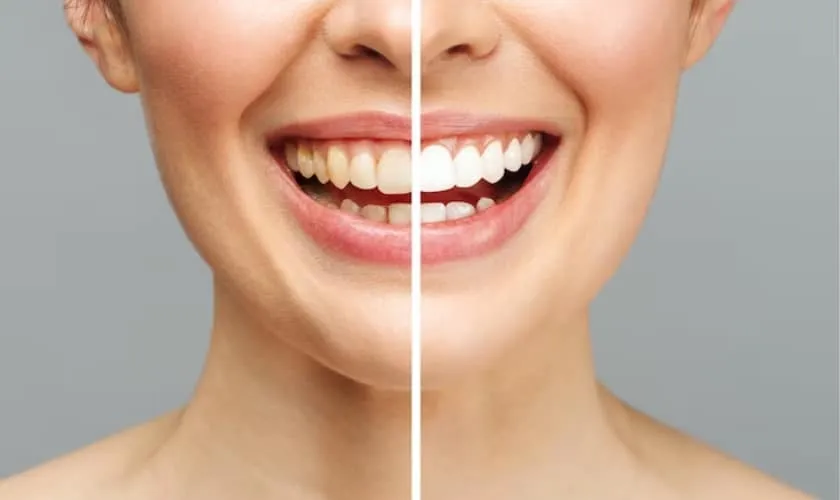
Teeth whitening can indirectly contribute to improved oral health and hygiene. The process of seeking professional whitening often involves a thorough dental examination, which can detect early signs of dental issues, such as cavities or gum disease. During the consultation, your dentist will assess your overall oral health and provide personalized recommendations for maintaining a healthy mouth. Additionally, patients who invest in teeth whitening are often more motivated to maintain good oral hygiene practices, including regular brushing, flossing, and dental check-ups. This proactive approach to oral care can prevent serious dental problems down the line, saving you time, money, and discomfort. The emphasis on oral health awareness during the teeth whitening process can lead to long-term benefits, promoting healthier teeth and gums. This also includes regular dental check-ups and cleanings to maintain your teeth’s improved appearance and overall health.
Teeth Whitening Enhances Your Appearance
Beyond the psychological benefits, teeth whitening visibly enhances your overall appearance. A brighter smile can make you look younger, healthier, and more attractive. This is because stained or discolored teeth can make you appear older, while a white smile can have a rejuvenating effect. Whitened teeth can complement your skin tone and make your face appear more radiant. This enhanced appearance can positively influence how others perceive you, potentially leading to better social and professional opportunities. The cosmetic improvements from teeth whitening are immediate and striking, contributing to a more polished and confident image. Whether you are preparing for a special event, a job interview, or simply want to look and feel your best, teeth whitening is an effective way to enhance your appearance and make a lasting impression. This includes the added bonus of looking years younger, something that can be very appealing to most.
Get a Professional Smile
Teeth whitening procedures, particularly those performed by a dentist, can provide more dramatic and lasting results than over-the-counter products. Professional whitening treatments often use higher concentrations of bleaching agents, leading to significant improvements in tooth color in a shorter amount of time. Dentists can also address specific types of stains and discoloration that at-home products might not be able to. Moreover, professional whitening ensures that the procedure is carried out safely and effectively. Your dentist will evaluate your oral health and ensure that the whitening treatment is suitable for your teeth and gums, minimizing the risk of any adverse effects. The outcome is a professionally whitened smile that boosts your confidence and enhances your overall appearance. Professional whitening ensures that the procedure is carried out safely and effectively.
How Does Teeth Whitening Work
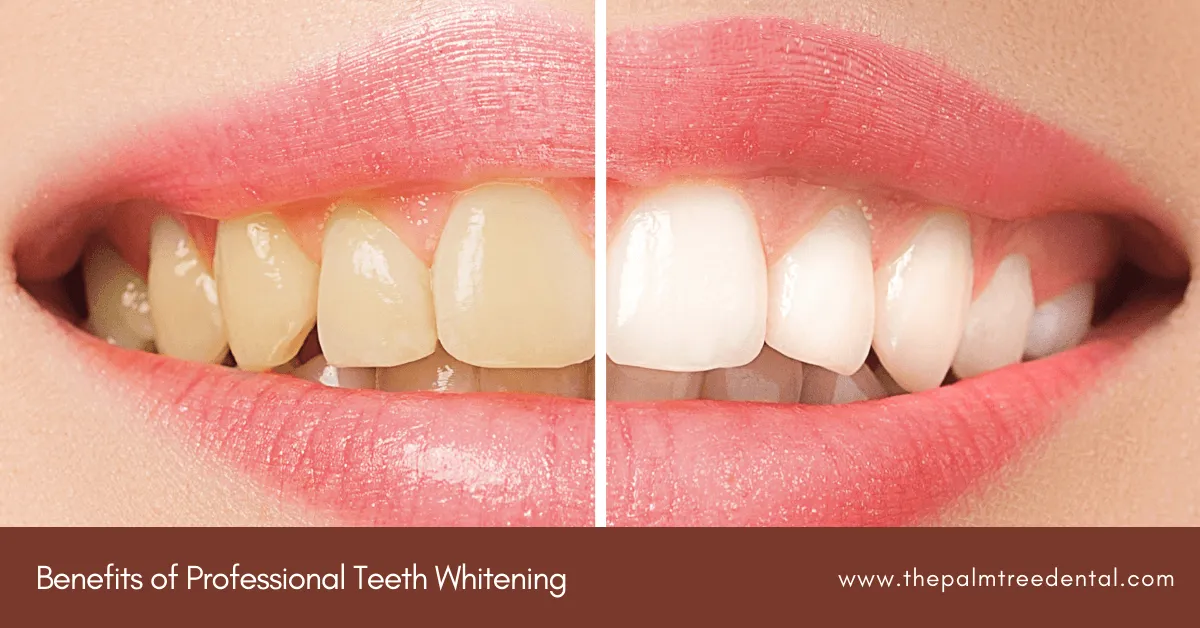
Teeth whitening involves using bleaching agents to remove stains and discoloration from the enamel. The most common bleaching agents are hydrogen peroxide and carbamide peroxide, which break down the stains into smaller particles, making the teeth appear whiter. There are two main types of teeth whitening procedures professional and at-home treatments. Professional whitening is usually performed by a dentist and involves applying a higher concentration of bleaching agents. At-home treatments include whitening strips, gels, and trays, which contain lower concentrations of bleaching agents. The effectiveness of each method depends on the type of stains, the concentration of the bleaching agent, and the duration of the treatment. Understanding the underlying processes helps in making informed choices regarding the selection of the best whitening option for your particular needs and desired outcomes. Consult with your dentist to decide the most effective option for you.
The Science Behind Teeth Whitening
The science behind teeth whitening revolves around the use of oxidizing agents, primarily hydrogen peroxide or carbamide peroxide. These agents penetrate the enamel and dentin, the porous layers of your teeth. The active ingredient, hydrogen peroxide, breaks down into smaller molecules that can diffuse through the enamel, oxidizing the stain-causing compounds. These compounds are then converted into less complex, lighter molecules, effectively reducing the appearance of stains and discoloration. The effectiveness depends on factors such as the concentration of the bleaching agent, the duration of application, and the type of stains present. Professional whitening utilizes higher concentrations of peroxide and often involves light activation to accelerate the process, resulting in more pronounced and immediate whitening results. The science assures that the process is both effective and safe when performed by a dental professional.
Different Types of Teeth Whitening
There are several teeth whitening options available to suit different needs and preferences. These range from in-office professional treatments to over-the-counter (OTC) products. Professional teeth whitening, performed by a dentist, typically involves using a higher concentration of bleaching agents and is often combined with special lights to accelerate the process. This can yield dramatic results in a single visit. At-home options include whitening strips, gels applied with custom-fitted trays, and whitening toothpastes. Whitening strips are convenient and easy to use, while custom trays provide a more even application of the bleaching agent. Whitening toothpastes contain mild abrasives or chemicals that help remove surface stains but are less effective for deep discoloration. The best type of whitening method depends on your individual needs, the severity of your stains, and your budget. Consulting with a dentist will help you determine the most appropriate option.
In-Office Teeth Whitening
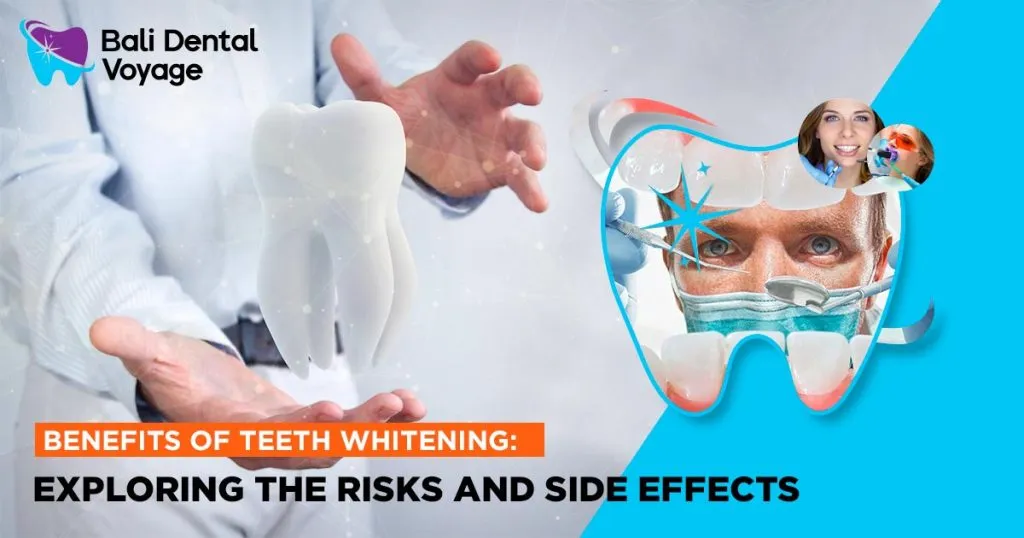
In-office teeth whitening, also known as chair-side whitening, is a professional procedure performed by a dentist. This treatment involves the application of a high-concentration bleaching gel to the teeth, followed by the use of a special light to activate the bleaching process. The entire procedure typically takes about an hour to an hour and a half, and the results are immediate. The dentist will protect your gums and lips before applying the gel, ensuring safety and minimizing any potential sensitivity. In-office whitening is ideal for those who want quick and dramatic results. The use of higher concentrations of bleaching agents provides a significant improvement in tooth color. The expertise of the dentist ensures both the effectiveness and safety of the procedure. The professional setting also offers the advantage of a complete dental check-up and advice from a qualified professional. The professional will make sure you’re safe and comfortable throughout the procedure.
At-Home Teeth Whitening Options
At-home teeth whitening offers a convenient and cost-effective alternative to in-office procedures. These options include over-the-counter products like whitening strips, gels, and toothpastes, as well as custom-fitted trays provided by your dentist. Whitening strips are easy to use and adhere directly to the teeth, delivering a low concentration of bleaching agent. Whitening gels are applied to custom trays that fit your teeth, ensuring an even distribution of the bleaching agent. Whitening toothpastes contain mild abrasives or chemical agents that can remove surface stains. While these methods are generally less potent than professional treatments, they can still provide noticeable improvements in tooth color over time. It’s crucial to follow the instructions carefully and to consult with your dentist to ensure that these products are safe and appropriate for your oral health. Your dentist can provide custom trays and guidance to maximize the effectiveness of at-home whitening.
Maintain Teeth Whitening Benefits
Maintaining the benefits of teeth whitening requires a proactive approach to oral hygiene and lifestyle choices. Regular brushing and flossing are essential to remove plaque and food particles that can contribute to staining. Using a whitening toothpaste can help maintain your bright smile. Avoiding or minimizing consumption of stain-causing foods and drinks, such as coffee, tea, red wine, and dark-colored berries, is also crucial. Periodic touch-up treatments, either at home or in the dental office, can help sustain the whitening effect. Regular dental check-ups and cleanings are important to ensure your teeth remain healthy and to address any new stains promptly. Good oral hygiene and dietary habits, combined with professional care, will extend the lifespan of your whitened smile, allowing you to enjoy the full benefits of teeth whitening for years to come. Maintaining your bright, confident smile is a long-term commitment.
Effective Teeth Whitening Tips
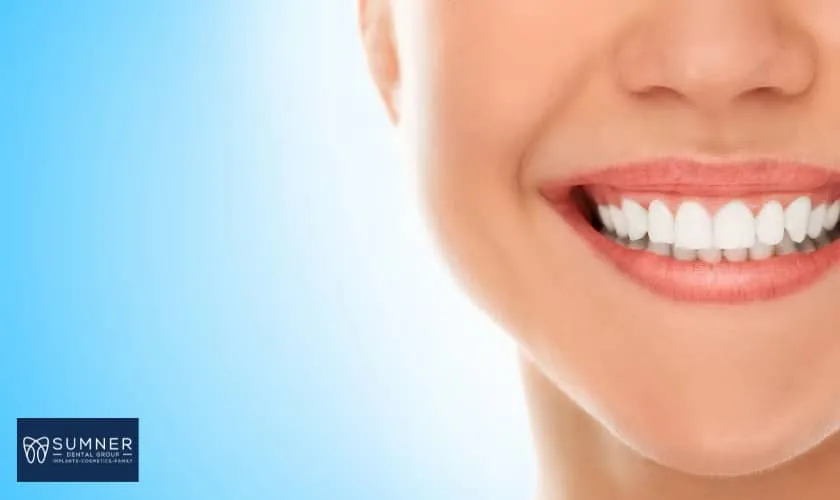
To maximize the effectiveness of teeth whitening and ensure long-lasting results, consider these helpful tips. Consult with your dentist before starting any teeth whitening treatment. This ensures that it’s safe for your teeth and gums. Follow all product instructions carefully, whether you’re using at-home or professional treatments. Be consistent with your brushing and flossing routine, using a whitening toothpaste to maintain brightness. Limit your intake of stain-causing foods and drinks. Consider using a straw to drink beverages that stain teeth. Schedule regular dental check-ups and cleanings to maintain oral health and address any new stains. Avoid smoking, as it can significantly discolor teeth. Consider touch-up treatments to maintain the desired level of whiteness over time. Following these tips will help you achieve and sustain a brighter, healthier smile. Prioritizing these tips will help you achieve the best results possible.
